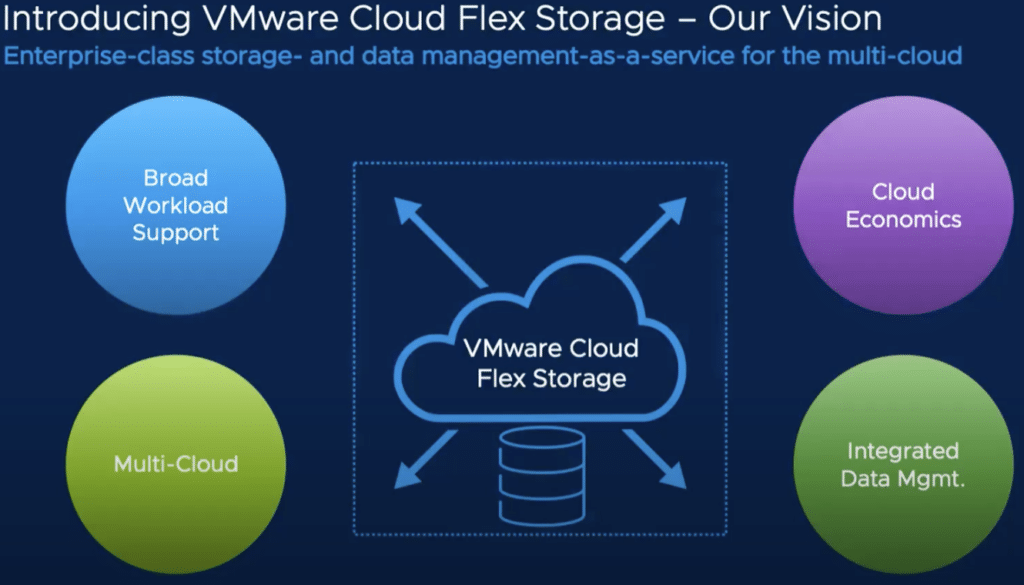VMware has announced the general availability of VMware Cloud Flex Storage, for VMware Cloud on AWS. This service allows customers to scale storage on demand, without the need to add hosts, making it particularly useful for storage-bound workloads. Cloud Flex Storage was launched earlier this year.
VMware has announced the general availability of VMware Cloud Flex Storage, for VMware Cloud on AWS. This service allows customers to scale storage on demand, without the need to add hosts, making it particularly useful for storage-bound workloads. Cloud Flex Storage was launched earlier this year.
VMware Cloud Flex Storage is delivered as an end-to-end managed service and can be easily provisioned through the VMware Cloud Services Console. It is built on an enterprise-class file system, previously developed by Datrium, that has been developed and production-hardened over many years and offers a pay-as-you-go consumption model.

It aims to reduce complexity and time-to-value for customers by supporting the lift and shift of virtual machines without the need to rework the data layer or re-architect the storage design. It can also scale storage-intensive workloads and offers a disaggregated storage service to independently and seamlessly scale storage performance and capacity to fit individual workloads.
VMware Cloud Flex Storage allows customers to scale their storage independently with NFS datastores, powered by a fully-managed Scale-out Cloud File System that is natively integrated into VMware Cloud. It offers up to ~400TiB of storage capacity with ~300K IOPS per file system, providing always-on data services such as at-rest encryption, deduplication, compression, and data integrity checks.
The storage service offers a 99.9% availability SLA within an AWS AZ and high levels of data durability due to regional S3 replication. It can be deployed with a simplified workflow in just a few clicks, without requiring networking or firewall configurations, and can be consumed on-demand or with a term subscription at a cost-effective and predictable $/GiB rate that is ideal for storage-bound workloads.
Engage with StorageReview
Newsletter | YouTube | Podcast iTunes/Spotify | Instagram | Twitter | Facebook | RSS Feed
